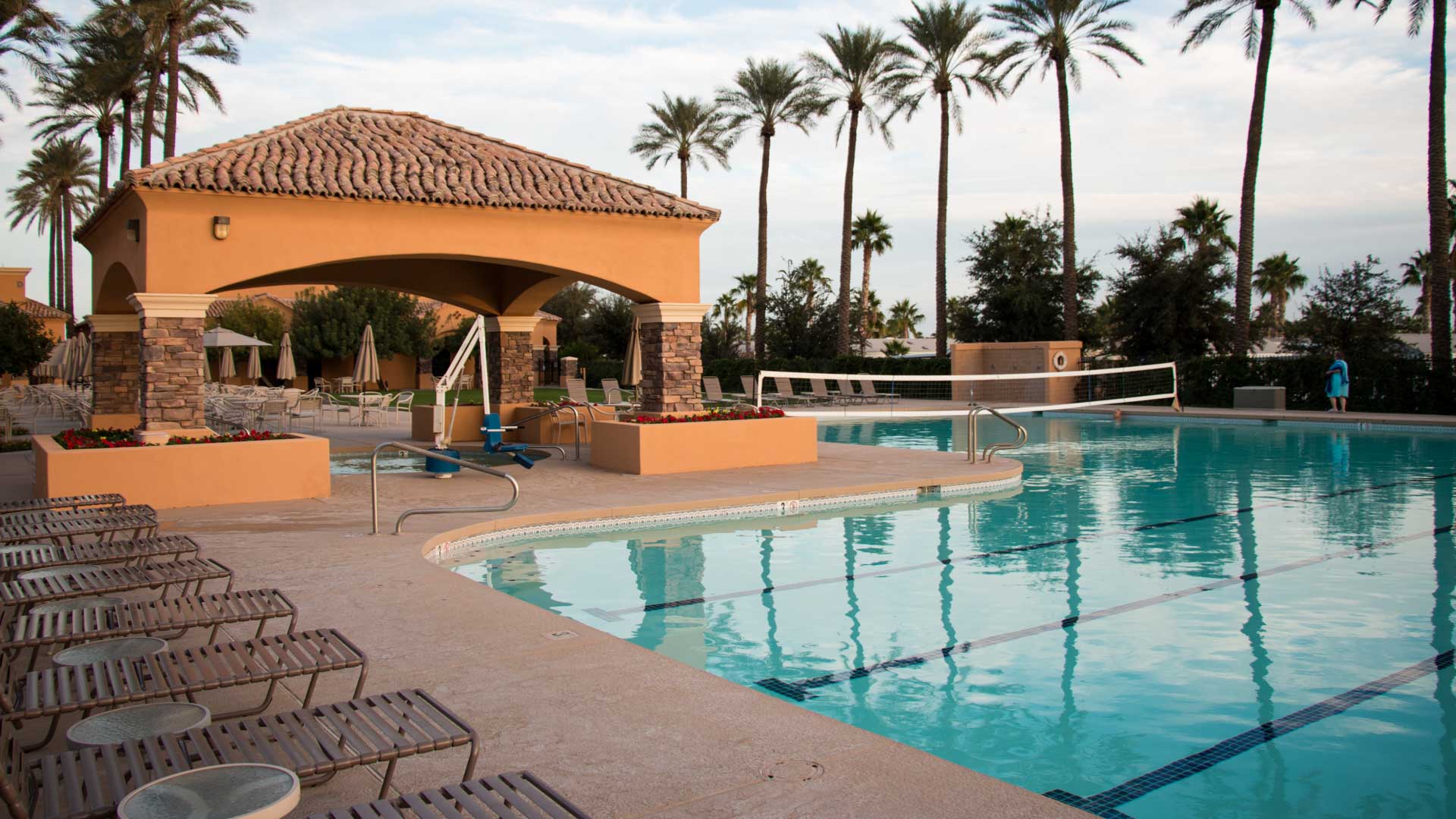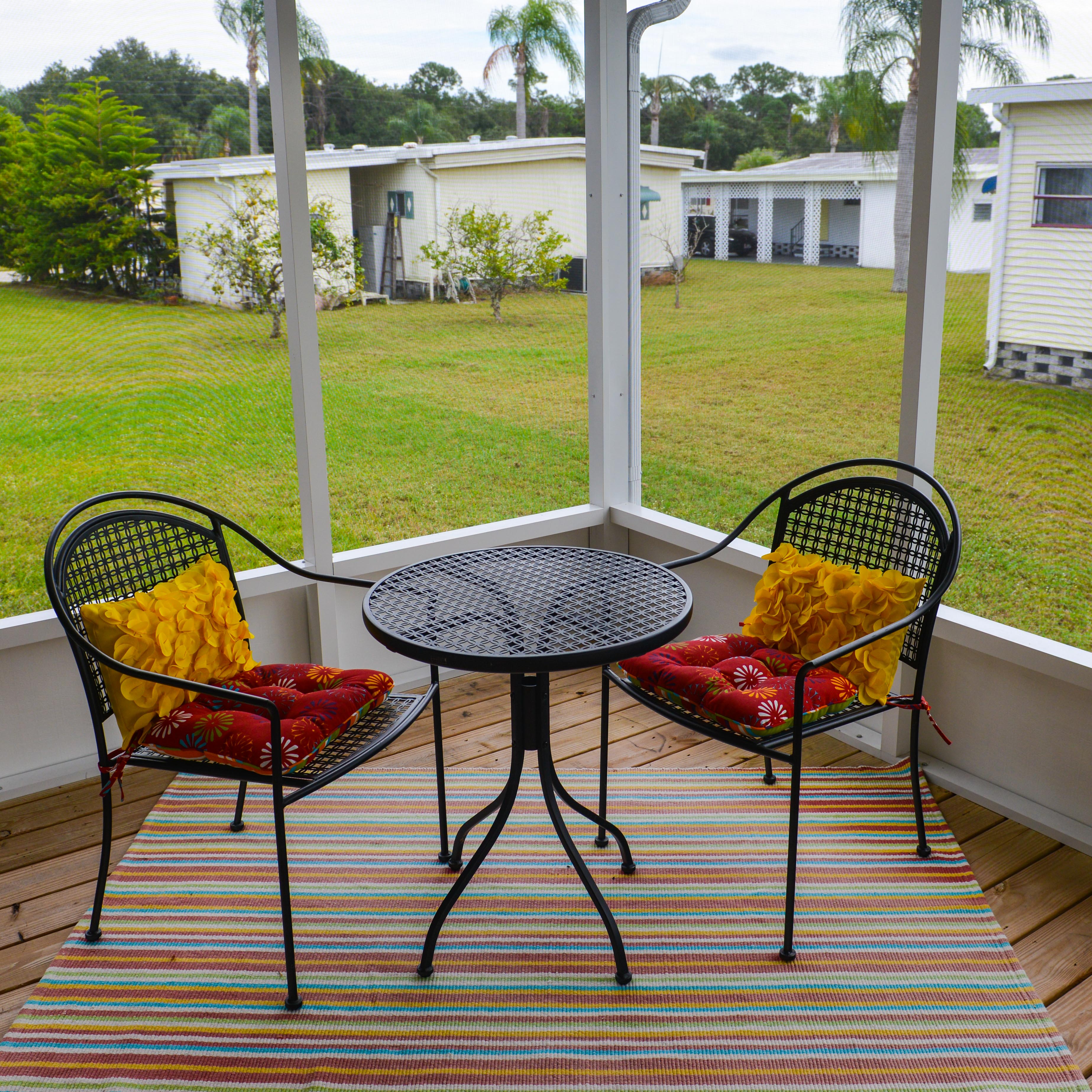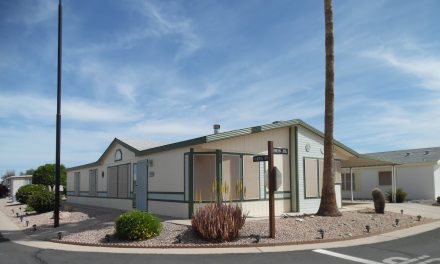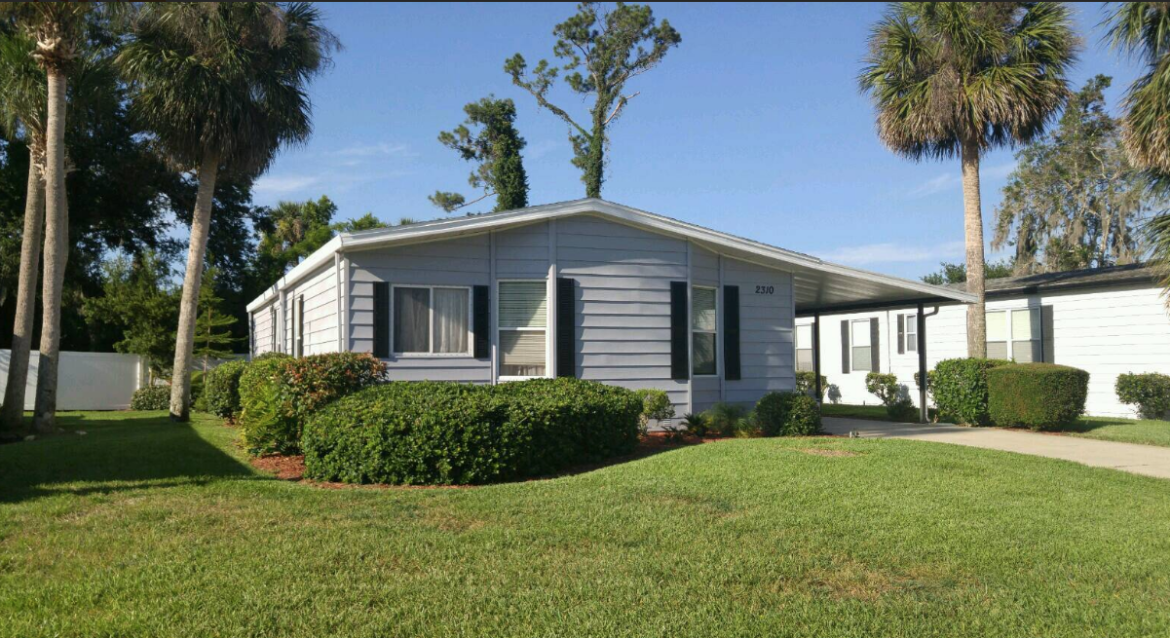When considering a home in a land-lease community, you may come across different terms and phrases like “land-lease fee,” “lot rent,” and “pad rent,” which can be confusing. With that said, it’s important for potential buyers to understand what it means to live in a land-lease community so they can know what to expect.
Definition of a Land-Lease Community
In a land-lease community, the owner of a home leases the land under which the home sits from a third party.
Mobile home and manufactured home communities are the most common land-lease communities, and in this case, the third party is generally a private individual, group, or company which owns the park and the accompanying land area.
Should I Buy a Manufactured Home in a Land-Lease Community?
There is no one right or wrong answer, but it’s important to understand the facts.
Because manufactured homes are the most affordable home ownership option available, the money saved in paying land costs can be applied to interior and exterior upgrades, such as interior finishes and amenities like walk-in closets or installing a more efficient heating and cooling systems.
Purchasing a home in the land-lease community typically includes access to unique community facilities and amenities. Some communities offer a wide variety of first-rate amenities such as swimming pools, fitness and recreation centers, laundry and cooking facilities, family and pet areas and more. Many of these communities also provide their own yard maintenance and refuse services as well.
At a glance, the national average cost to rent a manufactured home within a land-lease community averages between $844 and $935 per month. With that said, there are thousands of communities nationwide with monthly fees under $500 per month.
Consideration
When considering a home in a land-lease community, it’s essential to get a clear understanding of your lease agreement so that you can know what you can expect. Lease agreements are generally renewed on either a yearly or monthly basis. Read the terms and conditions. Pay attention to the surrender clause to avoid unpleasant surprises.
One potential drawback of land-lease communities is the limited appreciation potential of the home. Though land-lease home appreciation can occur, it depends heavily on the precise location and contingent local market conditions.
Land-lease communities are often run by a professional management company instead of a Homeowners’ Association (HOA). Both have their advantages and disadvantages. Whereas HOA boards are typically comprised of elected residents, professional management companies operations usually reduce the likelihood of impasses due to disagreement among residents.
In conclusion, when considering the purchase of a manufactured home in a land-lease community, having a clear understanding of all the options will help you make the most informed choice. Visit our indexed map-based search tool to explore thousands of land-lease communities across the United States and Canada.






If I buy amanurfactured home and purchase share will I own the property yhe home sits on ?
If I’m not mistaken, it sounds like you are considering buying a home in a resident-owned community. Generally speaking, you will own a share (not unlike a share in a publicly listed company, e.g Ford) of the total value acreage of the community. And you also own the home itself. To be clear, how this is set up can vary by community. The details are very site-specific. Always perfrom careful due diligence before signing any contracts. Hope that helps.
*Not intended as legal or financial advice.
I’m not entirely sure, but unless that share that you purchased includes some type of land owner agreement, which I think usually the language is usually different between owning a home and owning the land or lot that it sits on. You would normally need to own the deed to the property that the house sits on…and to do that, you would basically need to work out an agreement with the land owner.
where can I fill out a residency application
Debra,
You would first need to identify a community you want to live in. Then you make contact directly with the community manager to get a residency application. To get started, go to mhbo.com and search for your location by entering you city & state or zip code.
Hope that helps!
Thank you for sharing this information.
Does this community accept double-wides? If so, are there any lots available at the moment?
If I own a mobile home in a specific mobile home park, but don’t live there yet, can I be denied a lot residency, and what are the reasons a person could be denied?
The Fair Housing Act prohibits discrimination because of race, color, national origin, religion, sex, familial status, and disability. If you feel you have been denied lot residency for reasons related to discrimination then you would likely have a legal case to bring.
That said, without knowing your specific situation, if you violated a park rule of some kind, for example, have a felony record and didn’t disclose it to the park and they have a rule prohibiting felons from owning a home in their park, then that would be a reason a person might be denied. We are not attorneys so this should not be taken as legal advice. The bottom line is know your rights.
I live in Riverdale of Riverdale MHP located at
8000 Highway 85, Riverdale,GA 30296
We own our home and have lived here for 5 years. We have tried repeatedly in everyway we can imagine to aquire the corporate number
(Which the office refuses to give us) and to find out who owns the park with no luck.
Can you point me in the right direction to acquiring this information?
Thank You In Advance,
Deborah Stephens
⁴The corporation will be registered with the state.Usually this info is maintained by the Secretary of State. It is a public record. You can obtain the agent for service of process (the person yjou need to serve if you sue) through a public records request, or it may simply be available online.Easy. Good luck k.
Good afternoon, All. Please acquire any contracts, agreements, or applications prior to consideration of purchasing a mobile home and/or deciding to reside either in a resident-owned or mobile home park environment. This way, you can take your time and read the literature and ascertain if you need to run it by a caring and understanding attorney who has or will make the time for you (sometimes the verbiage needs a translator) prior to making a huge mistake that will take major time and money (that you may not have or may have to acquire) to fix. Let me respond to Lisa: You can be denied. There are several reasons a “supposed” denial can occur. You can be denied if you don’t make enough money to pay the steadily increasing mobile home lot rent (upwards of $500.00 per month in many venues). You can be denied if your mobile home is not in agreement with the septic system (bedroom and bathroom ratios to septic gallons), size – verify single, doublewide, etc., and measurements before purchase and consider the measurements should you have to move it). Attempt to be ever cognizant of mobile home movement and set up costs. All of the other things that you are not supposed to be denied for (e.g., race, color, creed, religion, sexual orientation, marital status, number of people in your family, disability, etc.) will not keep you from experiencing trouble once you move there…Let me respond to Peter H. The Fair Housing Act isn’t worth the paper it’s printed on! They or any other organization are not going to intercede on your behalf no matter what the mobile home lot owner is doing! You are on their land and you don’t own anything! Therefore, you will find out very quickly that you have no rights!! The mobile home lot owner is not governed by the Realtor’s Association (they can and will do absolutely nothing except recommend an attorney) or anyone else for that matter, for they don’t need to have a license to run a mobile home park! The mobile home lot owner does not have to afford you any reason to evict you! If they (not really the “true” reason of course – usual reasons are the “supposed” protected classes that will not be enforced) don’t like your hair color – you’re gone! There is absolutely nothing you can do about it – especially if you are on a month-to-month tenancy because your stipulated 12-month lease is up (not to say you cannot be evicted if they said you did something to warrant it – they will have a case)! You will then waste more of your time calling Fair Housing, Realtor’s Association, attorneys, etc. You will get excuses like, “We are swamped,” or “We don’t have any attorneys who practice in that field and/or are available to assist you.” If you have a dispute with the mobile home lot owner, the court will speedily relegate it to tenant-landlord dispute (so they don’t have to hear your case or deal with it greater than a few minutes). Then very quickly, the court will make a judgment in favor of the mobile home lot owner. You – as the mobile home owner will then have 10 [calendar} days to remove and relocate your MOBILE HOME; not household goods – ENTIRE MOBILE HOME! You’d better know to ask the magistrate for an APPEAL!!!! You’re going to need the extra time to find a lot (you need land that is plumbed for septic, electric, and water – a driveway is also good to have in place), mobile home mover (tear down, set up, and trim), file for permits (tax, housing, etc.), septic upgrades, and entities to connect the utilities (electric, water, and septic).
My best advice is: IF YOU’RE GOING TO GET A MOBILE HOME, RESEARCH, RESEARCH, RESEARCH!! GET YOUR OWN LAND FROM THE START – RIGHT OUT OF THE GATE!! STAY AWAY FROM ANY ARRANGEMENT WHERE YOU DON’T OWN YOUR OWN LAND AND HAVE OR RECEIVE NO BENEFIT FROM LIVING THERE! BEST OF LUCK TO YOU!!
* NOTE: I am not an attorney or attorney spokesperson. This commentary from my personal experience is not intended to cure, diagnose, or treat wrongful law or court handling of judicial complaints, conditions, diagnoses, diseases, or violations. Any similarities to persons living or deceased is a complete and utter shameful and unlawful coincidence. Thank you for your time and attention to my commentary.
Hi Daniene,
I like your commentary which is totally in accordance with my thoughts, I have a question for which I can’t find any reliable answer:
What are the laws or rules to terminate a lot lease agreement in a community and to move my mobile home to a land I own ? can a community land owner prevent me to leave with my mobile home.
…… I own a land , zoned for M.H. I plan to install a Mobile Home on it for my retirement….. cost of a M.H in a community are much lower priced compared to a new one and and even compared to an used on a private land, not to mention that M.H in 55+ community are usually clean and well maintained……… so my idea is to buy one in a community, to pay for the lot rent until end of the lease term, to hire a M.H. moving company and to say goodby……can this be an option…… If I pay all the lease term remaining rents in advance, can I leave with my M.H the next day?
In advance thanks for your advice
Hi Michel,
The ability to terminate a lot lease agreement in a mobile home community and move your mobile home to your own land will ultimately depend on the specific terms outlined in each individual lease agreement. Some mobile home communities may have different rules and regulations regarding the right to purchase and vacate homes from the community. Your lease agreement should outline the terms and conditions regarding termination of the lease, including any notice requirements and penalties for early termination.
In short, there is no unanimous rule on this subject to which all mobile home communities adhere. Rather, you will have to assess the terms of each lease agreement on a case-by-case basis.
Are there Any Open Lots for a Brand New Home?
Hello Ro,
You can use our map-based search tool to look for communities in your area, and from there you can contact the communities to see if there are open lots available for your new home.
Hi Shannon, here’s the link to our map-based search tool: https://www.mhbo.com/mobile_listings/maps#buy_get_started